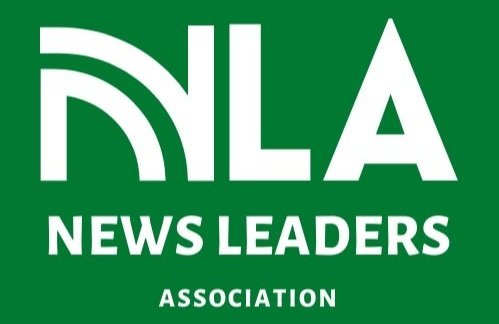SW20: Reporting package
The struggles of the local news industry affect not just the ability to cover the news, but also the traditional watchdog roles that newspapers and other local media outlets have traditionally filled. Those include the ability to fact-check misleading claims by candidates and political groups during election season; file legal challenges to gain access to government records or meetings of public bodies; and monitor state legislatures for bills seeking to roll back the public’s right to know.
To help existing news organizations and others, a number of groups are emerging to fill those gaps and to provide critical assistance. This year’s Sunshine Week highlights those traditional watchdog roles while providing news organizations guidance on how they can get the legal, legislative and fact-checking help they need. At stake is ensuring that the fight for government transparency will continue well into the future.
The American Society of News Editors launched the first national Sunshine Week in 2005 to coincide with the March 16 birthday of James Madison, father of the Constitution and a key advocate of the Bill of Rights. ASNE has since merged with the Associated Press Media Editors to form the News Leaders Association, representing news organizations across the U.S. The new group, along with The Associated Press, is sponsoring this year’s Sunshine Week, which begins on March 15.
The following stories will move on Tuesday, March 10, in advance for use on Sunday, March 15, and thereafter. All published content also will be available on the Sunshine Week website, http://sunshineweek.org.
For information about the story package, contact AP State Government Team Editor Tom Verdin at taverdin@ap.org. For information about the News Leaders Association, contact Teri Hayt: thayt@newsleaders.org.
To submit events or coverage for the Sunshine Week website, email: sunshineweek@newsleaders.org.
Sunshine Week budget
SUNSHINE WEEK-MISINFORMATION CAMPAIGNS
Political misinformation is often considered a national and international challenge, in part because of the Russian-based trolls and bots who spread false claims and sowed division in a bid to influence the 2016 U.S. election. It's increasingly a problem on Main Street, too, as local candidates and politicians adopt misinformation tactics and local news organizations shrink or shut down, leaving residents with fewer credible sources of information. The ability of local journalism to identify and call out misinformation will be put to the test in this year's elections _ in the presidential campaign and in local races for Congress, the statehouse and city hall. The good news is that a constellation of groups has emerged to help local news outlets counter the misinformation campaigns. They're helping local outlets re-purpose traditional reporting techniques to fit an era of doctored videos, online impersonators and partisan sites masquerading as news. By David Klepper. 1,200 words. Photos.
With:
_ Sunshine Week-Misinformation Campaigns-Getting Help, a rundown of resources to help local news organizations and citizens navigate the slippery world of political misinformation. 400 words.
SUNSHINE WEEK-FIGHTING FOR ACCESS
UNDATED _ Try to get a government record or attend a meeting of an agency or council, and chances are good that it will be public thanks to actions taken years ago by a newspaper or other local media outlet. Many state laws on open records, open meetings and court proceedings have their origins in lawsuits filed by local news organizations. The decline of the industry, and especially of newspapers, threatens the ability of the media to maintain its lead role in pushing for government transparency. Legal experts say they already see the toll the news industry’s struggles are taking on fights over access, and as a result government agencies, bureaucrats and elected officials are emboldened to keep their records and meetings from public view. In this changing landscape, a number of groups are stepping forward to fill the void by offering legal advice and even lawyers to carry on the news industry’s tradition of keeping government open. By Amy Taxin. 1,000 words. Photos.
With:
_ Sunshine Week-Fighting for Access-Getting Help, a rundown of legal resources to help local newsrooms and others file lawsuits or challenge government agencies over access to documents and meetings.
A new Illinois law expands the reasons why public bodies can close their meetings. In New York, a new law keeps video camera footage from school buses secret. And in Florida, photos from mass shootings can now be exempted from public disclosure laws. Those are some of the anti-transparency bills passed last year. They were among thousands of bills working their way through state legislatures that in some way addressed whether government records or meetings would be open to the public or sealed off from view. That type of legislation has become even more difficult to track as newspapers and other local news organizations have cut staff and either eliminated or greatly reduced their presence in state capitals. A new legislative tracking tool from an open government group is seeking to make that easier. The National Freedom of Information Coalition’s pilot project is designed to help local news organization and others track transparency-related legislation introduced in their states and see whether other states have similar measures. By Ryan J. Foley. 800 words.
With:
_ Sunshine Week-Legislative Transparency-Getting Help, a description of the new legislative tracking tool, what it offers and how local organizations can access it.
This just in …
Virus concerns lead to `public’ meetings without the public
JEFFERSON CITY, Mo. (AP) — First, Oklahoma lawmakers excluded the public from the Capitol because of coronavirus concerns.
Then with the public gone, lawmakers made an emergency change to the state’s open-meetings law to let all governmental entities meet via video or teleconference, so long as people can watch or listen remotely.
Across the U.S., numerous governors, lawmakers, mayors and county officials have made similar decisions to keep the public away from public meetings — all for the sake of public health. Ironically, the sudden policy shift has played out during the annual observation of “Sunshine Week,” a seven-day period intended to highlight the importance of open-government policies.
